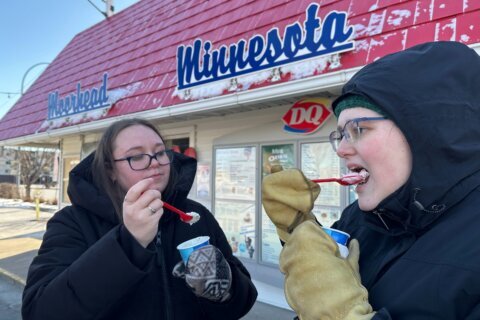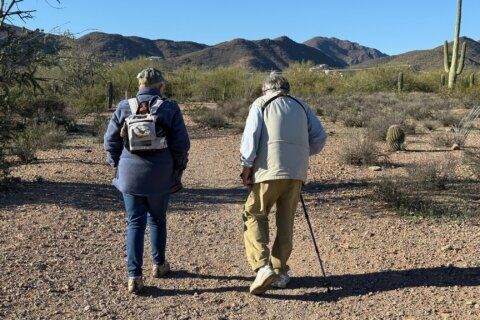It’s an exciting time for a lot of parents around the region as they get ready to send their kids off to kindergarten. But some parents might be a little nervous, since not all kids that enter kindergarten are ready to start school.
A new study is giving parents, and future parents, clues about what it takes over the course of about two years to get their kids ready.
The study, recently released in the Journal Pediatrics, looked at the number of positive early childhood experiences (PECES) that a child has had as they get ready for kindergarten.
“Positive early childhood experiences are known to support childhood growth and development among young children, specifically, between the ages of three to five,” said Krista Woodward, who was part of the team of researchers that conducted the study at Johns Hopkins Bloomberg School of Public Health.
“So we know that the accumulation of positive early childhood experiences does relate to higher levels of school readiness, meaning the more PECES kids are exposed to the better, or the more ready they will be for school or beginning kindergarten,” Woodward said.
The positive experiences are essentially broken down into four categories: nurturing relationships, home learning opportunities, safe and stable environments and family routines.
“Nurturing relationships really gets at the idea of families working together and talking through problems, or being able to stay hopeful during difficult times, and knowing strengths that they have to draw on,” Woodward said. “Secondly, home learning opportunities includes family activities, like reading or telling stories and singing together.”
For the third category, Woodward added that factors like food security, neighborhood safety and social supports add to a child’s experience with a stable environment. For family routines, she whittles it down to the frequency of full family meals and bedtime routines for children.
“As a parent, it’s really important for them to carve out time in their busy schedules to positively engage with their kids, whether that be singing or reading books at bedtime, or creating those daily routines or schedules,” Woodward said. “All of those things together will likely create a sense of safety and stability for toddlers and young children, so that they’ll thrive and flourish later on in school.”
This particular study only looked at kids between the ages of three and five, but she said other studies have shown that as kids get older, positive experiences with adult mentorship and school engagement have similar associations with strong academic success as students grow up, and even continues as they leave school and join the workforce.
Another important finding in this particular study though, is that the results held up regardless of ethnicity, race or income, though it “might matter more for families experiencing forms of social and economic marginalization,” according to Woodward.
On the flip side, kids exposed to more adverse childhood experiences (ACES) aren’t necessarily doomed for the rest of their lives.
“It doesn’t mean if someone has high exposure to ACES that they’re destined for a difficult life or poor health or poor academic performance or anything like that,” Woodward said. “But it is to say that [exposure to] positive childhood experiences … can have really great buffering effects for [children]. And so it is great for parents and caregivers to provide all of those activities.”
She said the impact is especially noticeable in those early years, since 43% of children with high levels of PECES were ready for kindergarten, while just 15% of those with low levels of PECES were.
That makes it pretty clear to researchers that “higher levels of school readiness was observed when there were more positive early childhood experiences accumulated,” Woodward said.








